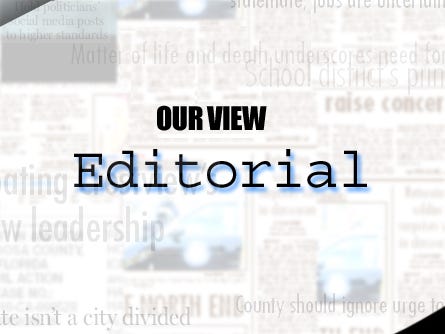
The not-guilty verdict for a 29-year-old Hispanic who fatally shot a 17-year-old black high school student has inspired a national discussion.
Broadcast and cable news channels have aired town halls and discussion panels on the State of Florida v. George Zimmerman verdict and equality, or lack thereof, in criminal justice.
Our Facebook fans contributed to a lengthy — and not always civil — discussion on the Zimmerman verdict, equality and justice.
Saturday, Okaloosa County’s NAACP branch, Blacks in Government, the Okaloosa County Democratic Black Caucus and community leaders presented “We Are Trayvon Martin,” a town hall at Mt. Zion AME Church in Crestview. Discussion focused on the Zimmerman verdict, equality and justice.
These topics saturate most of the post-trial discussion, which includes a flurry of Facebook friends’ shared Trayvon Martin memorial posts and retweets of celebrities’ calls for justice for Trayvon.
A 17-year-old’s death is a tragedy, and the outcome could have changed if Martin or Zimmerman acted differently on Feb. 26, 2012, but let’s face the fact: A six-member jury of Zimmerman’s peers found him not guilty of second-degree murder based on insufficient evidence.
Sometimes, the topic of race and criminal justice is a fair discussion point; for instance, the likelihood of a male serving time in a state or federal prison is about 4 percent, white; 28 percent, black and 16 percent, Hispanic, according to the Bureau of Justice Statistics.
However, when evidence aligns with the verdict, discussion on perceived racial disparities detracts from discussions that are more constructive.
Witnesses heard the gunshot and cries for help and yelping, but nobody saw anything beyond two figures fighting. An expert witness confirmed the likelihood of Trayvon straddling Zimmerman, based on the bullet’s direction through the teen’s clothes. Zimmerman’s bloodied head confirmed his story about being bashed into concrete. And there were no racial remarks within Zimmerman’s 911 call.
Jurors analyzed the evidence and didn’t convict. Not because of race, but because the prosecution didn’t prove, beyond a reasonable doubt, that Zimmerman planned to murder Trayvon.
Meanwhile, there are substantive discussion points, like the media’s scratching an itch to cry a racial foul.
NBC News edited Zimmerman’s 911 call and transcript in a manner that first made this case about race. “This guy looks like he’s up to no good. He looks black,” the transcript initially said, ignoring a crucial line of dispatcher’s dialogue that first said, “OK, and this guy — is he black, white or Hispanic?”
Gary Tuchman, an Atlanta-based CNN national correspondent, gave one of the network’s “top audio experts” a platform to suggest Zimmerman could have said a racial slur. Later, the network used “an even higher-tech method to analyze what was said that night,” anchor Wolf Blitzer said. Tuchman and the audio analyst agreed that Zimmerman likely said the word cold, referring to a chilly rainy evening.
Why didn’t CNN link the word cold with the weather? Why did it initially assume the worst?
Then there’s Zimmerman’s gunfire; while he acted in self-defense, jurors determined, could he have shot Trayvon to wound, rather than kill? Too often, people fatally shoot an aggressor rather than wound them until authorities arrive at the scene.
However, even that question carries some assumption about the altercation between the teenager and the man. And Florida concealed carry advocates point out that self-defense involves shooting as necessary to avoid harm not to kill or to wound. Doing otherwise could suggest a premeditated act.
That night, two people from different worlds collided. But their predetermined differences, if any, may not have been race; they may have involved perceptions of resident versus intruder, older versus younger or bigger versus smaller. No one knows the answer but Zimmerman and Trayvon.
Okaloosa’s NAACP contingent and others led a meaningful discussion on Saturday as they tried to make sense of this tragedy. But sometimes, senseless tragedies are just that.
And there’s still the option of a civil lawsuit against Zimmerman, so Trayvon’s family and supporters may find justice and closure yet.
What's your view? Write a letter to the editor or tweet News Bulletin Editor Thomas Boni @cnbeditor.
This article originally appeared on Crestview News Bulletin: EDITORIAL: Examining Zimmerman, race and criminal justice
